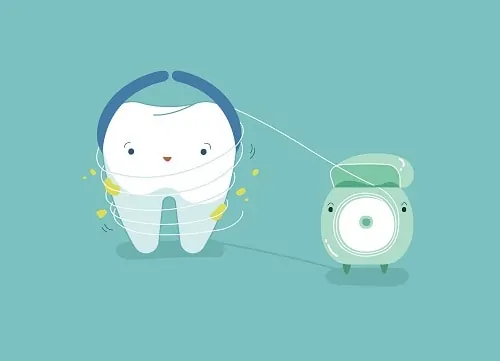Blog
How to Pick the Best Dental Floss

When you walk down the oral health care aisle at your local supermarket, it can quickly become overwhelming. There are just so many different types of toothbrushes, tubes of toothpaste, bottles of mouthwashes, and packets of floss to pick from. How in the world are you supposed to pick the best products for you? Don’t worry, today the team at our Douglasville dental office is here to help narrow your options for one of the most important tools in your oral hygiene toolbox — floss.
Flossing can sometimes be overlooked as a crucial part of your oral health, but the truth is, flossing every day is incredibly effective at lowering your risk for cavities and gum disease. This means that you need to choose a type of floss that you will use regularly and properly. Let’s take a closer look at the three most common types of floss recommended by your dentist in Douglasville.
Traditional Floss
The most common type of floss is the traditional string floss found in those little, compact containers. This time-tested original can work really well for many people as it’s what they first learned to floss with, so it’s comfortable to use. However, those who may have trouble using their hands or fingers may not be able to reach around each tooth or back into the molars. This is when an alternative option should be considered.
Floss Picks
Floss picks are those little plastic tools that have a small piece of floss threaded between two posts. They’re pretty inexpensive and can be just as effective as traditional floss if used properly. However, while some people may find floss picks easier to use, others find just the opposite. So essentially, there’s no real right or wrong answer when it comes to which is better. The best way to decide is to try both options and see which is easier for you to use. Keep in mind, floss picks only use a small section of floss so you may need to use a few flossers each and every time you floss.
Water Flosser
A newer and more high-tech flossing option that’s making its way into bathrooms across the country is electric water flossers. These tools are highly effective at removing plaque and bacteria, and many studies suggest that they may be the most effective of any flossing device. But they don’t come without a few potential cons. Water flossers need to either be plugged in or charged, so they aren’t incredibly convenient. They’re also larger in size so storage and traveling may pose a few complications. Lastly, they can be pricey, although they do last a long time and reduce waste.
What matters most to your dentist in Douglasville isn’t necessarily which type of floss you use, but rather that you floss regularly and properly. If you’re finding that flossing is challenging and you’re looking for a better solution, we welcome you to call our dental office in Douglasville. We’re always happy to help find the best tools for each one of our patients.
The Surprising Summer Activity That Can Harm Your Teeth

Swimming is a popular summertime activity, and it’s good for you too! It’s a great form of cardiovascular exercise, it’s easy on the joints, and it’s a sweet way to cool off on those hot days. But the team at our Douglasville dental office knows that there could be some harm lurking in your pool water that you probably don’t know about.
Swimming Pools & Your Teeth
Many pools use chlorine to keep pool water free of dangerous bacteria that could be harmful to humans. But this chlorine may also put another part of your body at risk for damage — your teeth.
Research dating back to the 1980’s studied the negative effects of chlorine on your oral health, particularly your tooth enamel. Part of what chlorine does is help level out the pH balance of pool water, so it’s safe for families. For most situations, pool water should have a pH between 7.2 and 7.8. But when this drops below this ideal range, the water actually becomes acidic. If this happens and you spend a lot of time in the pool, or a lot of water gets into your mouth, the acid can wear away tooth enamel and even cause tooth discoloration.
Why Is Tooth Enamel Important?
Tooth enamel is the super-strong protective layer of our teeth. It helps keep dangerous plaque and bacteria from eating away at the teeth and causing cavities. If tooth enamel erodes, whether it’s from an improperly chlorinated pool, drinking too many acidic drinks like lemonade, or brushing too hard, teeth are at increased risk for decay, wearing down, and sensitivity.
Who Is At Risk?
While anyone’s teeth can suffer from enamel erosion, the cases in which the erosion is caused by chlorine is often found in competitive swimmers or those who spend a lot of time in pools. The truth is if you only swim occasionally, you’re probably not at risk.
Signs of a Problem
Two of the first signs that a pool’s pH is too low are irritated skin or burning eyes while swimming. Over time, you may start to notice brown spots on your teeth (known as swimmer’s calculus) or experience increased tooth sensitivity. If you notice any of these changes, visit your dentist in Douglasville as soon as you can.
Protecting Your Tooth Enamel
Besides proper brushing and flossing, there are steps you can take to help protect your enamel against erosion — and no, you don’t need to give up swimming. Just make sure you test the water for proper pH levels regularly and try to keep pool water out of your mouth as much as possible. Of course, it’s also important to see your Douglasville dentist at least every six months for regular checkups and professional cleanings.
